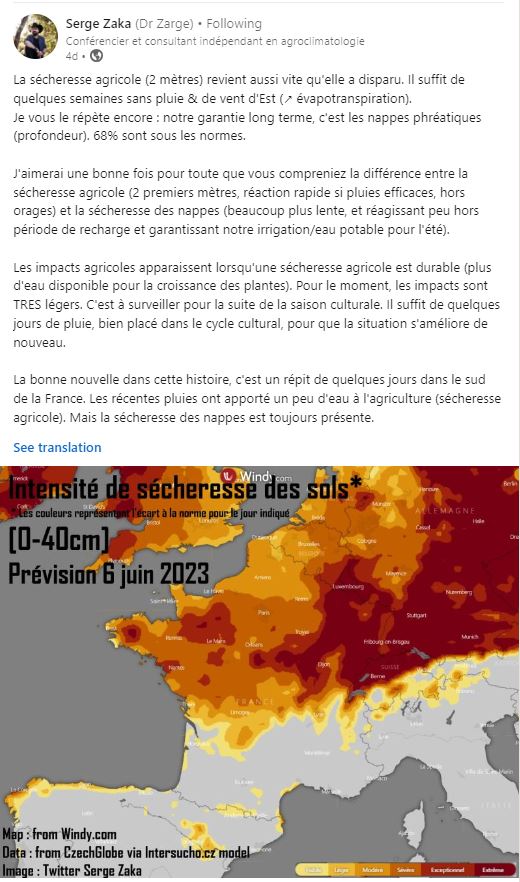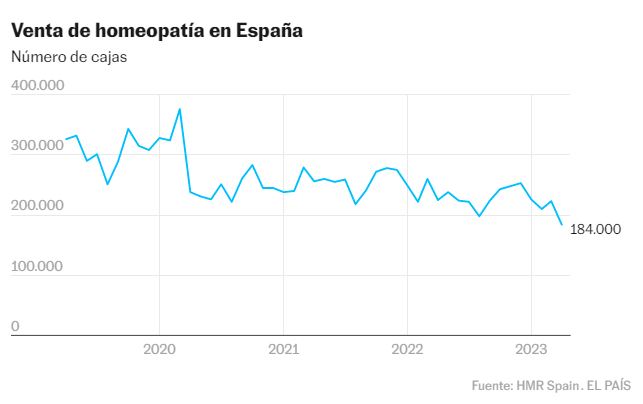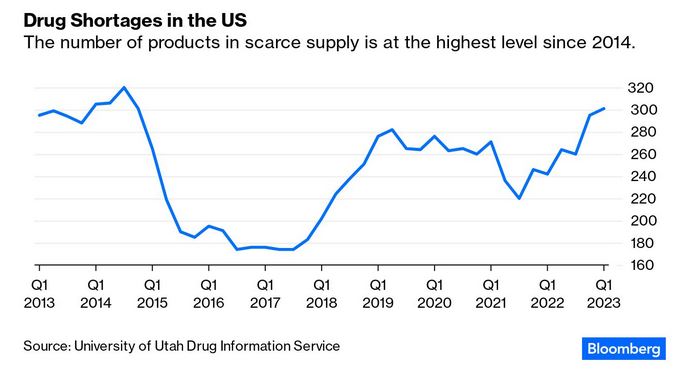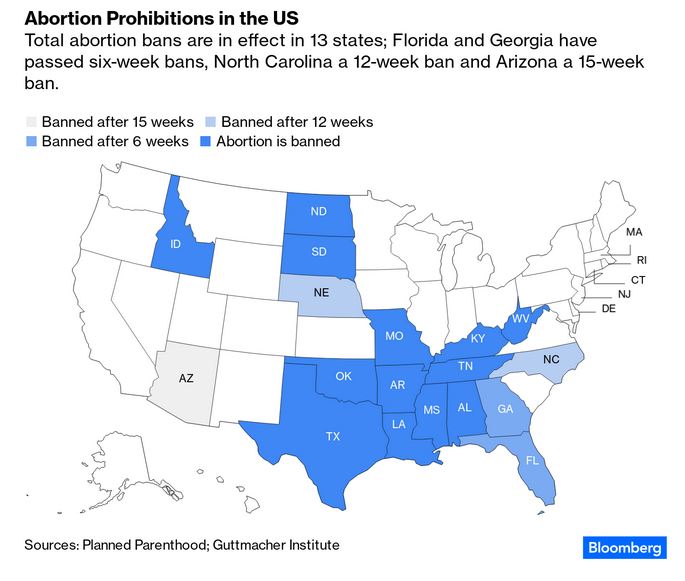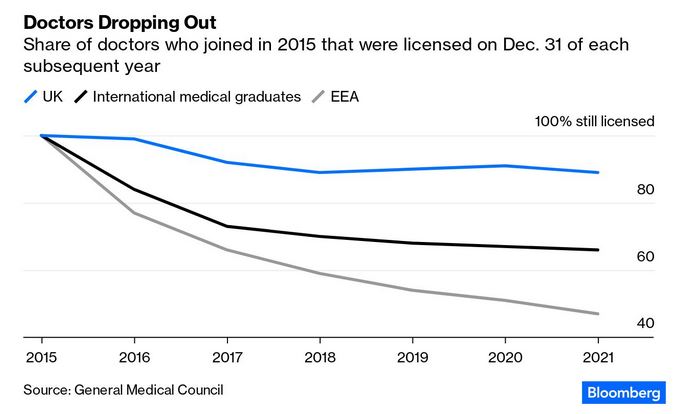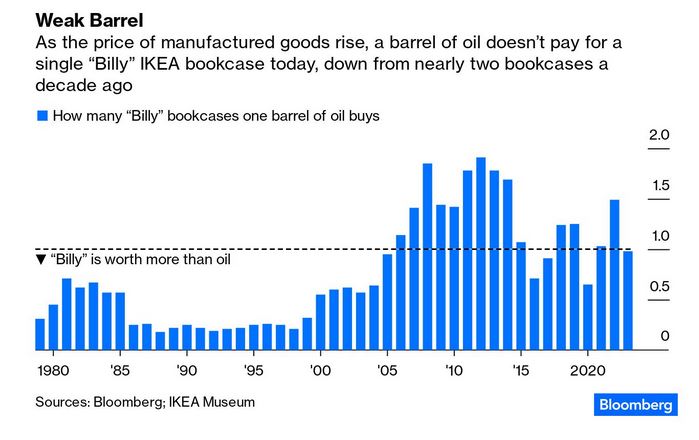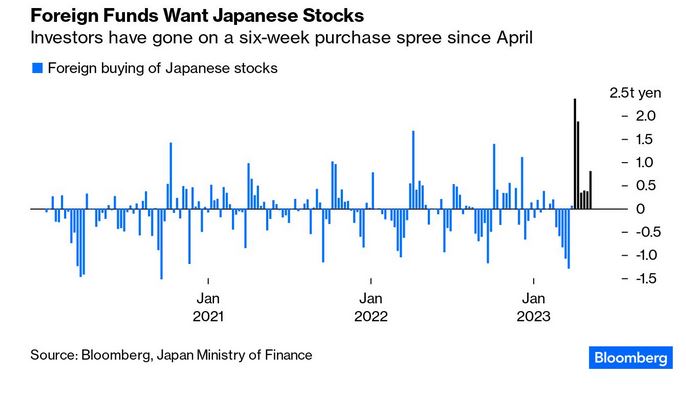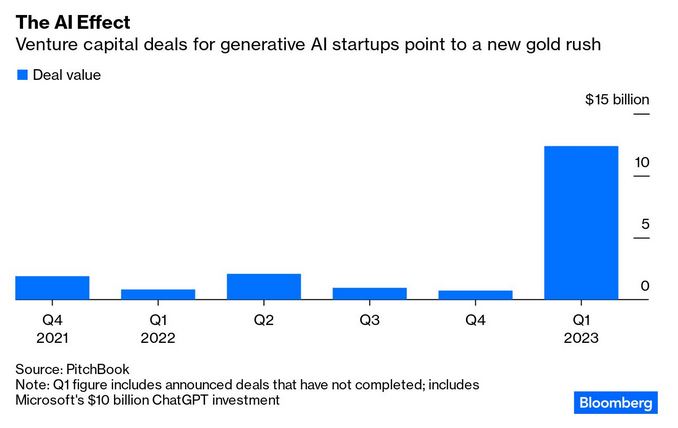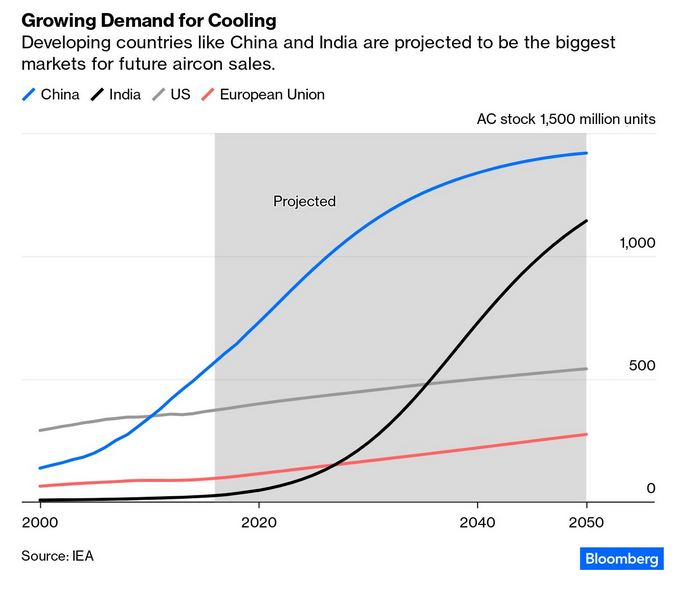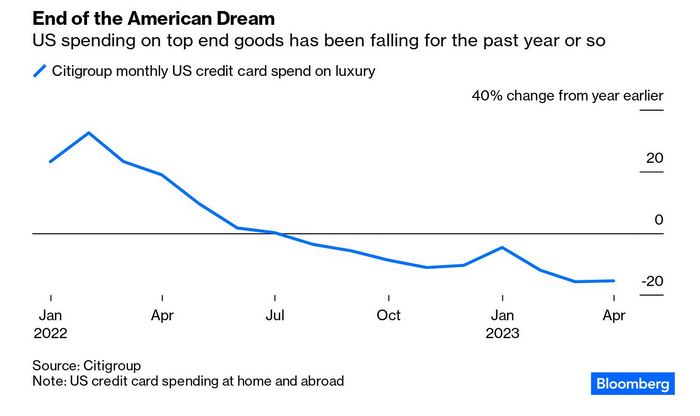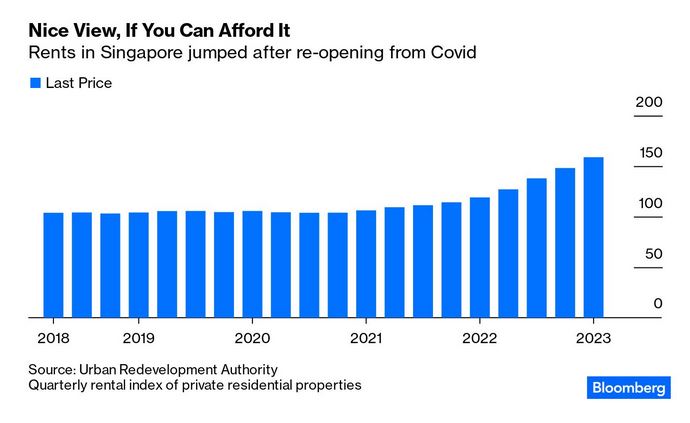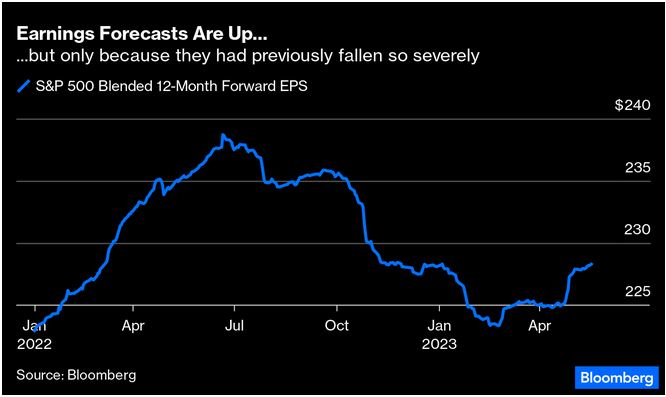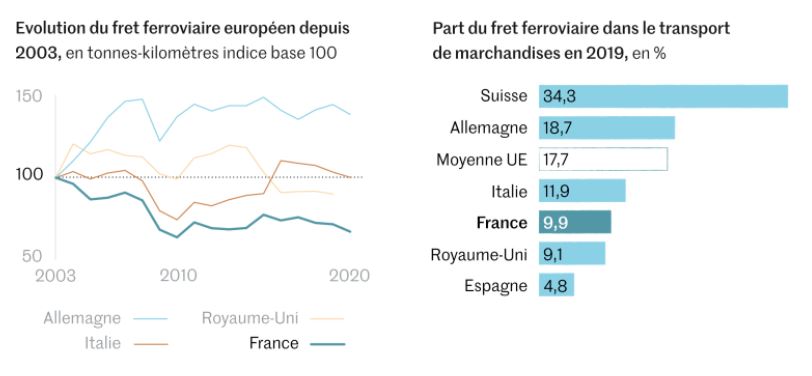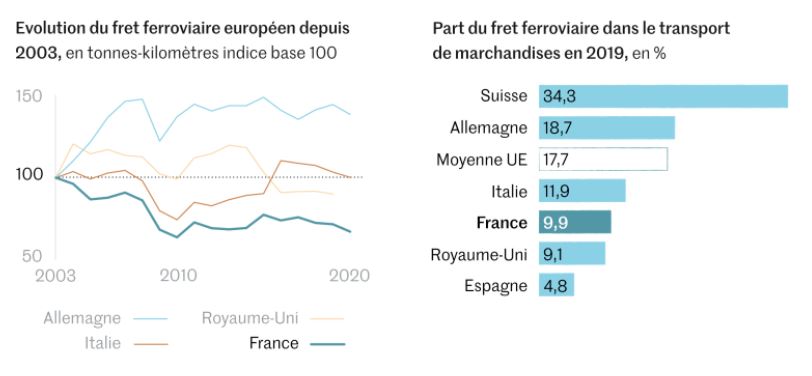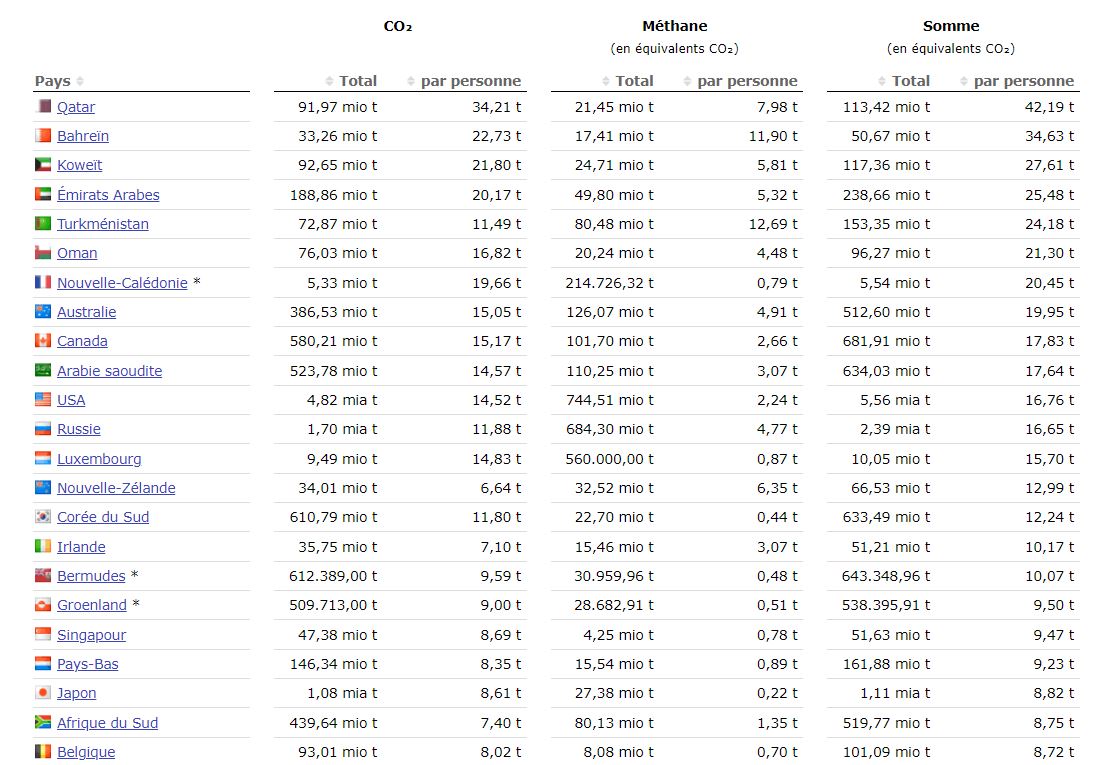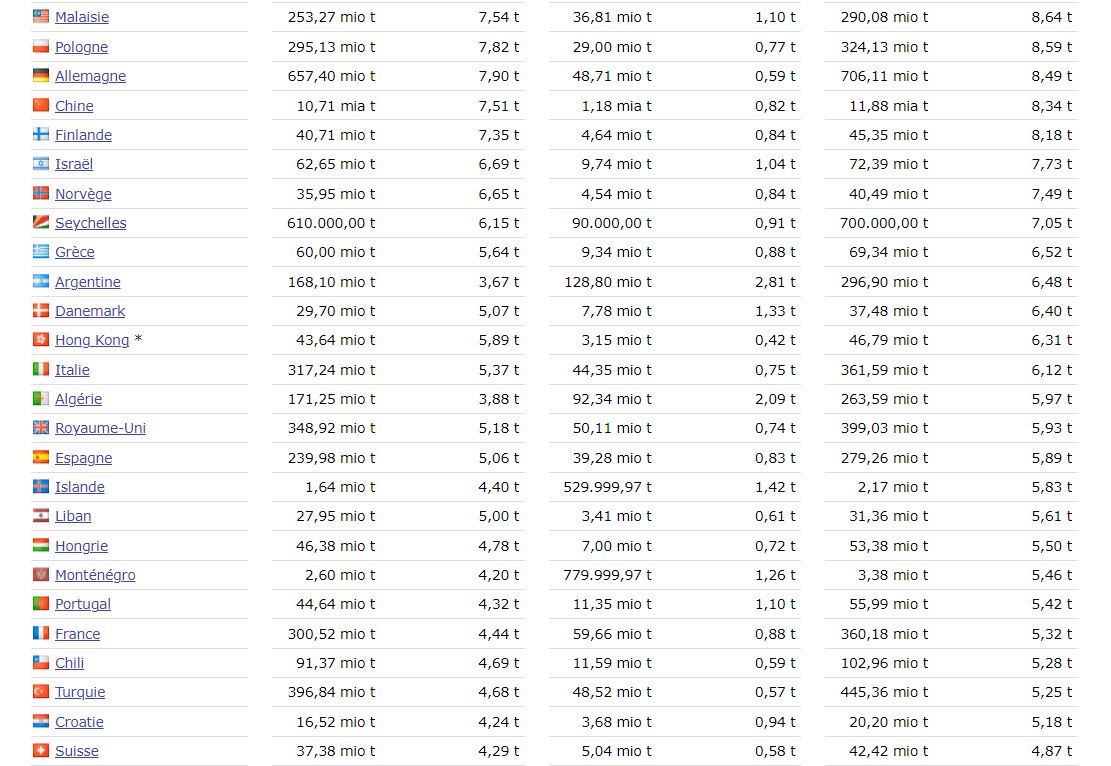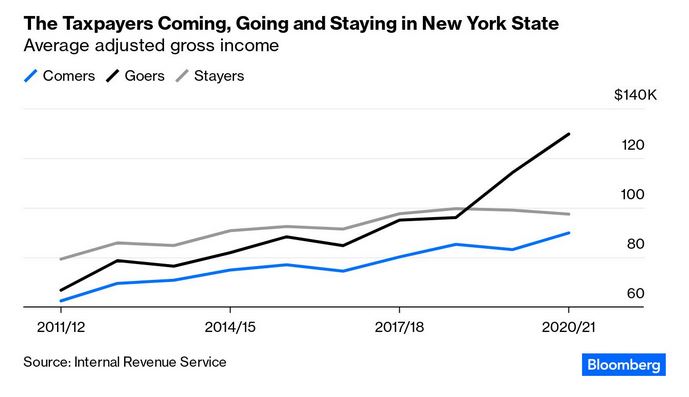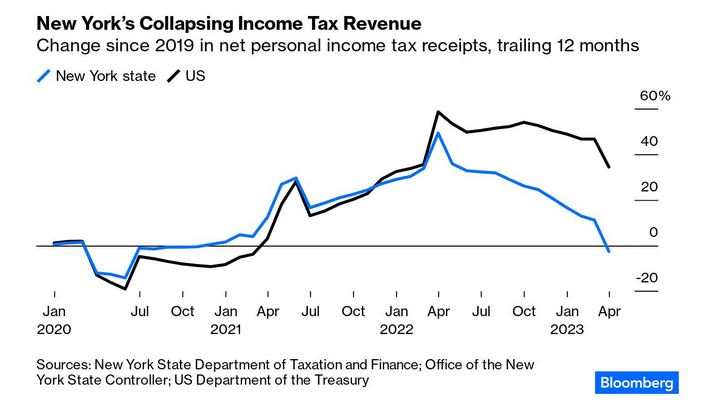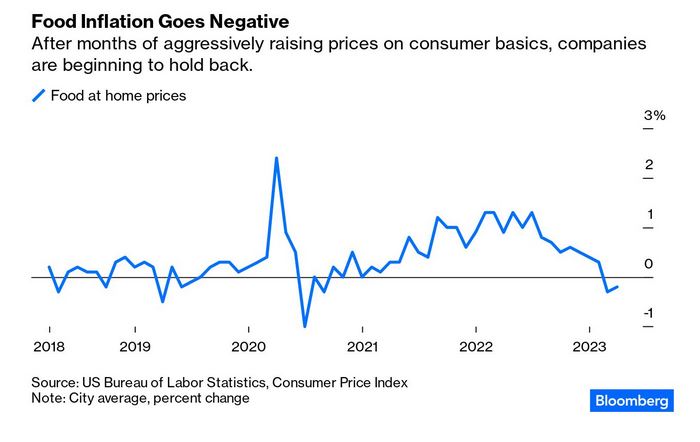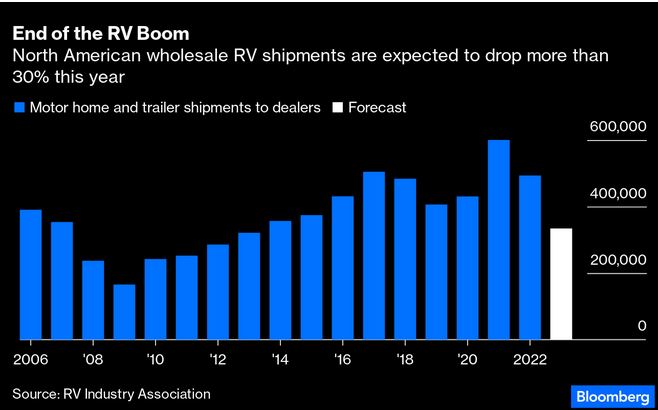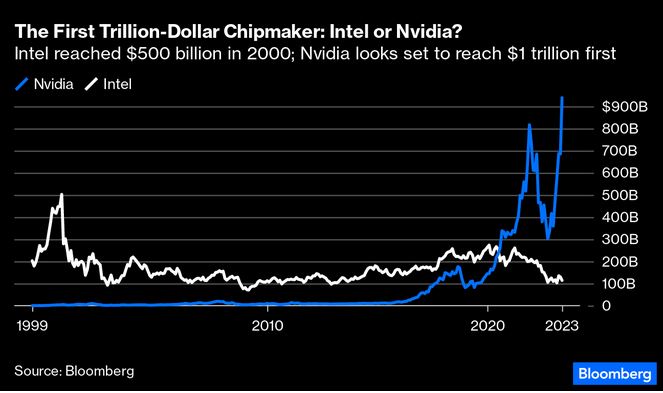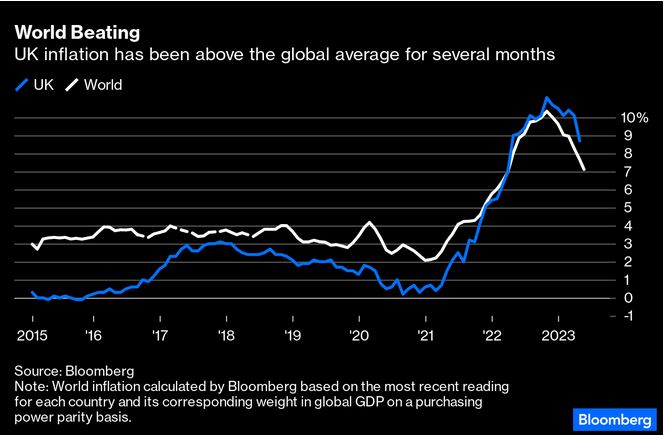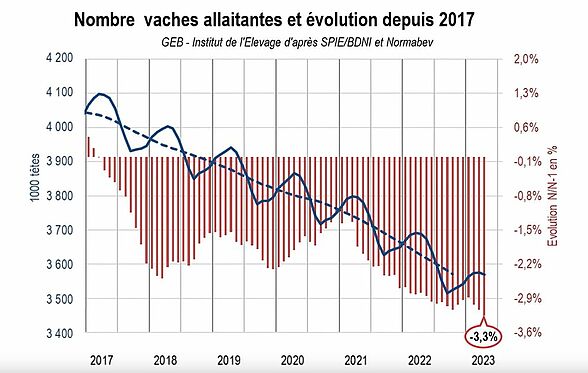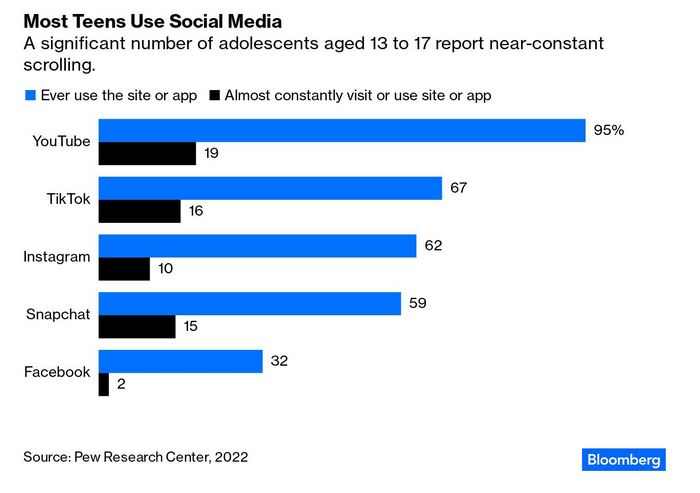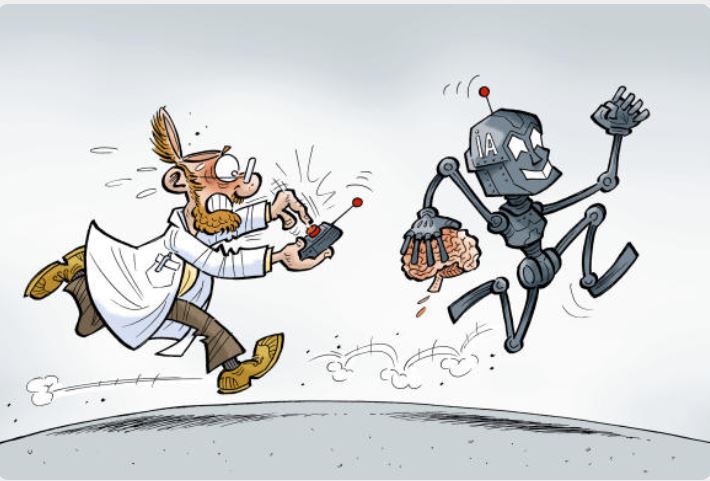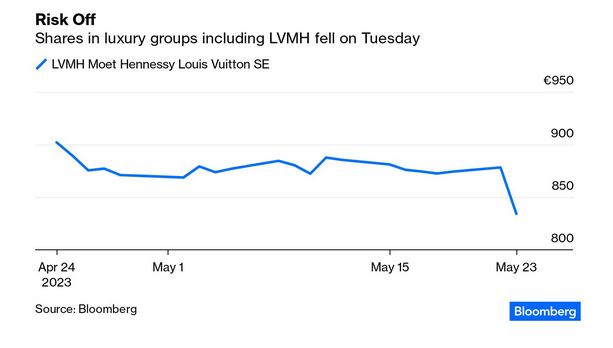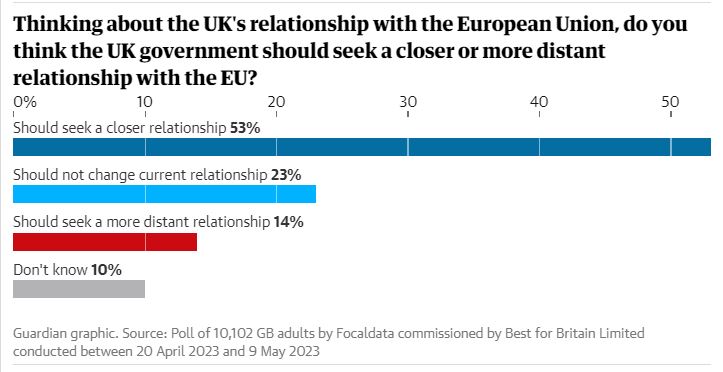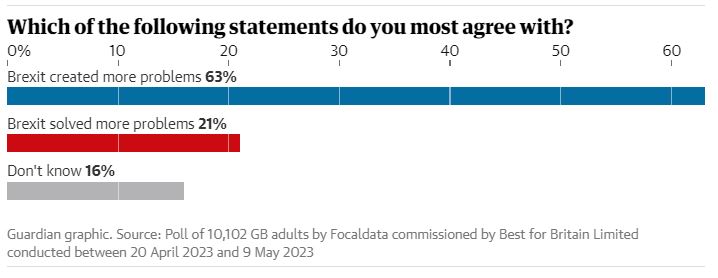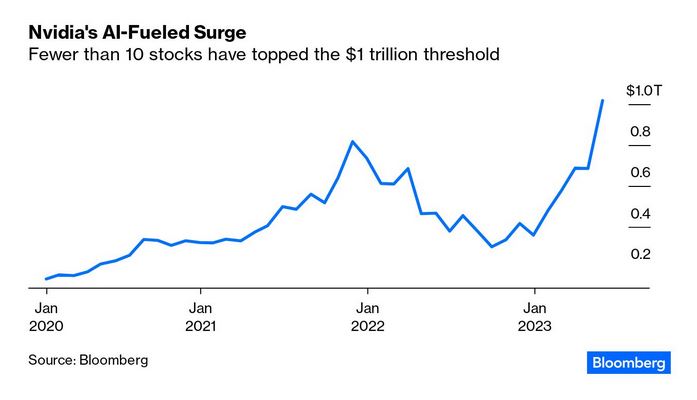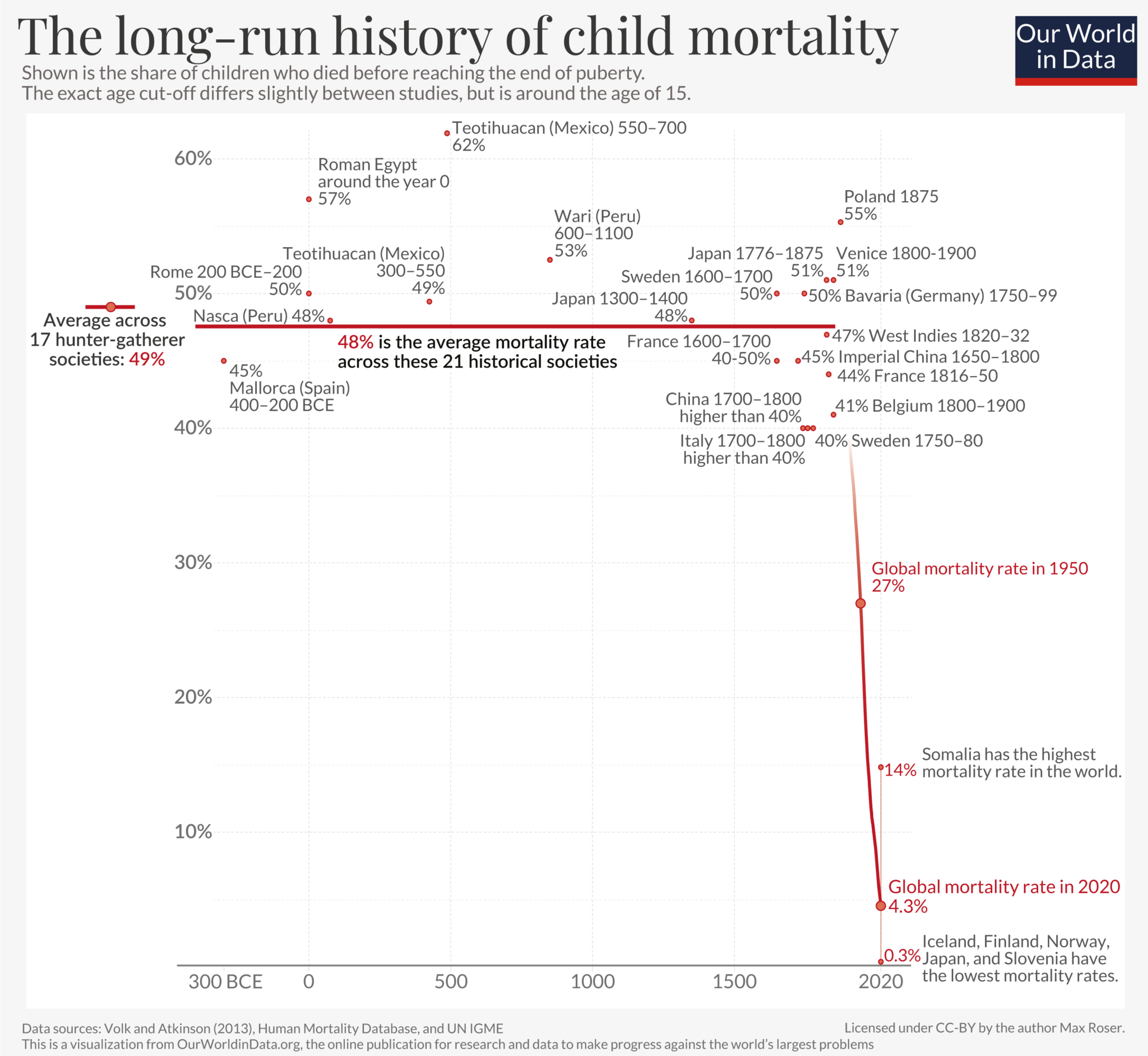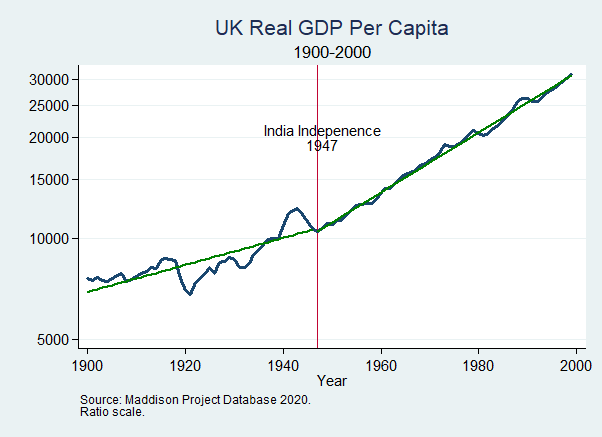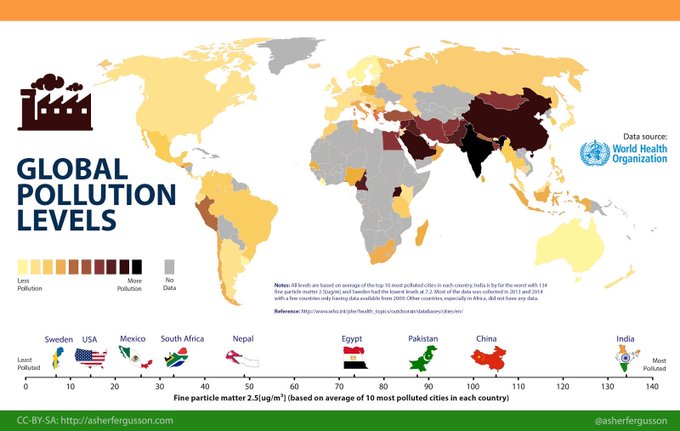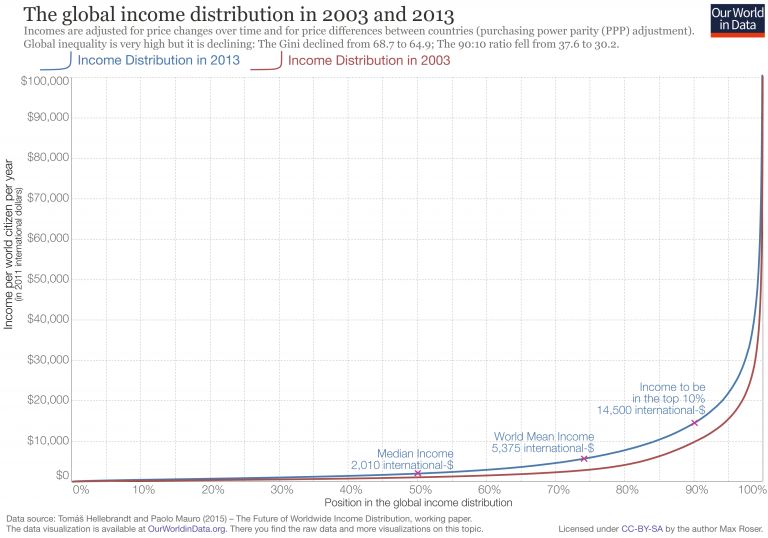|
You
can also view the message online
|
|||||||||||||
 Châtenay-Malabry (FR - 92290), June 05, 2023 EFITA newsletter / 1072 - European Federation for Information Technology in Agriculture, Food and the Environment The informatique-agricole.org site offers you the possibility of subscribing the RSS feeds of its two newsletters See RSS feeds to implement to ensure that you continue to receive this newsletter To unsubscribe this newsletter, please contact me directely: guy.waksman(a)laposte.net if this link Unsubscribe does not work. 
To correspond with me (GW), please use this address: guy.waksman(a)laposte.net To subscribe the efita newsletter (please ask your friends and colleagues to test this link) Efita Newsletters subscription Avant l’informatique / Before computers Weekly newsletters about ICT in Agriculture in English and French Both newsletters have around 5000 subscribers. >>> Last weekly EFITA Newsletters in English (created in 1999) Efita Newsletters >>> Last weekly AFIA Newsletters in French (created more than 20 years ago in 1997) Afia Newsletters >>> Statistics for the latest efita newsletter >>> Last issue of the afia newsletter >>> Last available satistics for the afia newsletter GW during a session of the Academy of Agriculture / Ma pomme pendant une séance de l'Académie d'agriculture (Photo : Ph. Kim Bonbled, merci Philippe)
Au marché de Quimper US military drone controlled by AI killed its operator during simulated test See theguardian.com And the same fact seen by the excellent Bloomberg newsletter… No, An AI Drone Didn’t Try to Kill Its Human Overseer Artificial intelligence continues to dominate the headlines. A story about an AI-powered drone deciding to try to exterminate its human operator for becoming an obstacle to its mission just went viral, after a report that Colonel Tucker “Cinco” Hamilton, the chief of AI test and operations for the US Air Force, told a Royal Aeronautical Society conference about the incident. On Friday, the RAS said Hamilton “misspoke,” and was discussing a hypothetical “thought experiment” based on plausible scenarios and likely outcomes rather than a real-world example. But the episode highlights
the world’s willingness to believe the worst when it comes to the threat
posed by smart software. Earlier this week, a group called the Center
for AI Safety issued a one-sentence warning: Mitigating the risk of extinction
from AI should be a global priority alongside other societal-scale risks
such as pandemics and nuclear war. Adolf and Vladimir First thematic workshop - India, the new El Dorado for farming robots? 29 June 2023 - WEBINAR https://img.swapcard.com/?u=https%3A%2F%2Fcdn-api.swapcard.com%2Fpublic%2Fimages%2Fb3258f0aab8f4fe193f0840ba3f89103.png&q=0.8&m=fit&h=720 See fira-agtech.com 14th European Conference on Precision Agriculture (ECPA) : unleashing the potential of precision agriculture July 2-6, 2023 - BOLOGNA (IT) The 14th European Conference on Precision Agriculture will showcase the results of ongoing research and applications in precision agriculture. Organised under the auspices of the International Society of Precision Agriculture (ISPA), by the Department of Agricultural and Food Sciences of the University of Bologna, the ECPA sessions will present Precision Agriculture from the viewpoint of scientists, crop consultants, advisors, extension personnel, agronomists, producers, and other practitioners. See ecpa2023.it US Biostimulants Summit 2023 July 12-13, 2023 - RALEIGH, North Carolina The conference will bring together leading executives and experts from across the entire value chain (producers of biostimulant and plant nutrient products, farmers and agriculture suppliers, technology providers, research institutes & government representatives) for two days of informative presentations, interactive discussion & excellent networking opportunities. See wplgroup.com Vieux breton du Morbihan
Futurefarming.com > MK-V Tractor: The Tesla of agriculture? Since its launch in 2020, the Monarch MK-V electric tractor has generated a great deal of interest in the agricultural industry. > Water management: Sustainable water management: Lessons for farmers worldwide As water scarcity and environmental concerns continue to challenge farmers, it is essential to seek innovative solutions that promote sustainable water use. > One smart spray: CNH Industrial integrates One Smart Spray precision spraying One Smart Spray, the smart spraying solution of a joint venture between Bosch and BASF, shall be integrated within CNH Industrial’s agricultural brand products. > Water Needs: ‘A plant itself knows better when it needs water’ Israeli company Agrinoze uses the crop itself as an indicator of how much water a plant needs. > FLEX-RO robot: Building of the autonomous Flex-Ro Robot The automated system is known as Flex-Ro, short for flexible robot, built by UNL's Biological Systems Engineering Department. > Field robots: Solinftec presents the Solix Hunter robot, a night predator of insects The Brazilian agtech Solinftec presented the Solix Hunter, an autonomous robot that eliminates insects without the use of chemical pesticides. > Irrigation automation: Cane farmers near Great Barrier Reef are adopting irrigation automation Australian cane farmers near the Great Barrier Reef are adopting irrigation automation to arrest rising groundwater and salinity issues, use less water and prevent runoff. > Carbon products: Bunge and Nutrien Ag Solutions helping development of lower carbon products The program will focus on soybeans grown in the regions close to Council Bluffs, Iowa, and Decatur, Indiana, with the opportunity for future expansion to other locations and crops such as corn and wheat. > Using the potential of smartphone cameras in crop stand counting Croptimistic Technology has developed a sprayer mounted camera system to count plants while spraying. > Drone catalogue: Be Featured in Future Farming’s application Drone catalogue Are you in the business of agriculture drone/UAV manufacturing or conversion? We have an exciting opportunity for you! > Expert opinion: Mistaking short-term for long-term solutions’ To achieve environmental goals, governments need to make serious investments in agriculture modernization and long-term support. > Regenerative farming: Cargill pays European farmers for sustainability Cargill will pay farmers in Germany, France, Poland and Romania extra for the use of regenerative farming methods. > Special focus: The Autonomous Wizard of Oz blog Part 5: ‘From a big autonomous tractor to a 112 kW field robot’ > Field robots: The Autonomous Wizard of Oz blog Part 5: ‘From a big autonomous tractor to a 112 kW field robot’ Gerrit Kurstjens is a pioneering farmer who has already clocked up 40,000 ha of autonomous operations on 13,000 ha of cropping area at Beefwood Farms. He had a long search for a suitable autonomous tractor to replace its old stalled version fails. > Future farming: Dutch farmers watching the future of agriculture Lots of technology, lots of robots, but also dialogue about social issues in The Netherlands. > John Deere: John Deere establishes allied agreement with PCT Agcloud An allied agreement between John Deere and PCT will help to revolutionize in-field data analysis for grain, corn, soybean and cotton farmers in North America, Australia and New Zealand. See futurefarming.com Famille de Pont Labbé (Finistère)
Regenerative farming: Cargill pays European farmers for sustainability Cargill will pay farmers in Germany, France, Poland and Romania extra for the use of regenerative farming methods. The American agro group pays farmers a compensation for improving soil health. In addition, the company pays for activities with a positive impact on the environment. For example, the storage of carbon – in the form of organic matter – in the soil. See futurefarming.com
With momentum
from the repair and reuse movement at its back, this "IKEA for
waste" in Hamburg, Germany is pushing back against throwaway
culture.
Heatstroke as seen by Pierre Zaka / Le coup de chaud vu par Pierre Zaka The City-Run Department Store for Recycled Goods With momentum from the repair and reuse movement at its back, this "IKEA for waste" in Hamburg, Germany is pushing back against throwaway culture. See theprogressnetwork.org Brain zapping probably does boost focus, by Emily Waltz After years of debate over whether non-invasively zapping the brain with electrical current can improve a person’s mental functioning, a massive analysis of past studies offers an answer: probably. Transcranial electrical stimulation (TES) involves sending a painless, weak electrical current to the brain through electrodes on the scalp. A meta-analysis of more than 100 studies examining one type of TES found that the technique brings about moderate improvements in attention, memory and problem solving. But not everyone is convinced. “The problem I have with this paper is that it lumps together studies that are effectively different interventions,” says neurologist Alvaro Pascual-Leone. See nature.com New plan not enough to save Colorado River Seven US states
this week finally agreed on a plan to cut their use of water from
the iconic Colorado River, which supplies water to more than 40 million
people in the United States and Mexico. The river, battered by overuse,
drought and climate change, has been drying up. Scientists welcome
the plan, but note that the agreement is only a temporary fix to a
much thornier problem. Drug Shortages in the US / Pénurie de médicaments aux USA (comme en Europe !) Abortion Prohibitions in the Middle Age USA / Interdiction moyenâgeuse de l’avortement aux USA Doctors’ penury / Pénurie de docteurs aux USA Cheap oil / Pétrole pas cher
A recent New York Times op-ed criticizes the "progress narrative" as an excuse for inaction: "The Panglossian scenario painted by these new optimists naturally appeals to defenders of the status quo. If things are really getting better, there is clearly no need for transformative change to confront the most pressing problems of our time." This profoundly
flawed conclusion reveals a misunderstanding of the history of progress.
From the abolition of slavery to the Green Revolution, progress has
often come from transformative change. And while things are gradually
improving, there are still many problems to solve. Progress can—and
should—be faster. L'aveugle de Tregubc European soils > European Soil Data Centre Newsletter No.153 (May 2023) - > European Soil Data Centre Newsletter No.152 (April 2023) > European Soil Data Centre Newsletter No.153 (March 2023) > European Soil Data Centre Newsletter No.150 (February 2023) > European Soil Data Centre Newsletter No.149 (January 2023) Cover Crops across Europe Despite the growing importance given to cover crops as a sustainable agricultural practice (9-13 Million ha in the EU), the availability of spatial data for them is scarce. The best information available are regionally aggregated survey data, which, although indicative, hinder the development of spatially accurate studies. In a collaborative research study of JRC with INRAE, Paris-Saclay University and LSCE from France, we developed a disaggregation model to derive cover crops at high resolution. The model combined satellite data (Sentinel-1) with aggregated survey data to generate a high-resolution map of cover crops for Europe and the United Kingdom for the reference year of 2016. The map was validated with parcel-level data in France, where overall good results were found, with regional variations. This dataset includes the median, standard deviation, 5th and 95th percentiles of the predicted cover crop fraction. Data available: See esdac.jrc.ec.europa.eu
Wanted: Japanese Stocks / Actions de sociétés japonaises recherchées Wanted: cooling / La mode de la climatisation No taste for luxury goods / Les dépenses pour des produits de luxe en baisse Fuel Positive: Making green ammonia for fertiliser and fuel on-farm Canadian technology will enable crop farmers to manufacture their own green ammonia for fertiliser from air and water, with renewable energy where possible. See fuelpositive.com How Renewable Energy and Crops Can Coincide, by Jane Marsh, Editor-in-Chief Environment.co Wind and solar farms are sometimes dedicated solely to producing renewable energy. However, farmers can also integrate renewable energy with traditional planting operations to maximize the use of space and even improve crop growth. Here’s how farmers are combining the practices. See globalagtechinitiative.com Scientists develop better potatoes, for the sake of chips You can’t have just one. Potato chips are America’s classic snack: crunchy, salty, greasy, and tasting of potato or flavored with things like sour cream, vinegar, BBQ, maple bacon, or Cajun dill. And today, on March 14, chip lovers across the country can celebrate them on National Potato Chip Day. It shouldn’t be a surprise that Americans eat more potato chips than any other nation; more than four pounds a person a year, according to Potatoes USA. About 22 percent of the U.S. potato crop — nearly 7,500 million pounds annually — is made into chips. Consumers spend more than $7 billion dollars buying potato chips at retailers. And USDA’s Agricultural Research Service helps ensure that the country always has the perfect potato for frying into chips. ARS’ potato breeding program has already produced some major winners in the potato chip category. One is Atlantic, a variety ARS developed and released in 1976, that remains the number two chipping variety in the United States. .../... See agdaily.com Vieille femme de Carantec An Ashamed Greenpeace, by David Zaruk, April 23, 2023 This week, Greenpeace won a case in the Philippine Supreme Court to suspend the sale and production of the recently authorised golden rice and a modified eggplant. But rather than the usual celebrations where the NGO gloats to their donors and followers about another great victory, for four days the Greenpeace websites and social media accounts have not mentioned this news at all. This was a more curious point than any legal victory in a corrupted judicial system. After decades of fighting the commercialisation of golden rice (a grain supplemented with beta carotene), Greenpeace was seen to be unsympathetic to the malnourished in developing countries at risk from Vitamin A Deficiency (VAD), an affliction that kills millions and causes up to 500,000 children to go blind annually (source: Johns Hopkins). They also campaigned against the authorisation of an eggplant (Bt brinjal) that removed the necessity for smallholders to regularly apply pesticides to keep the brinjal fruit borer under control. This technology led to better work conditions for farmers and a more abundantly available vegetable staple in poor regions of the developing world. Both of these life-saving, empowering innovations went against Greenpeace’s anti-technology orthodoxy and for more than two decades they have been relentlessly trying to block their developments. Greenpeace is fully aware of how socially unjust these campaigns have been, how it portrays the organisation as a cosmopolitan elite Western alliance trying to impose their affluent values on the poorest and most vulnerable in developing countries and how factually baseless their anti-biotech fear campaign has been. Years of constant criticism at the highest levels (including a letter signed by 110 Nobel laureates likening their golden rice campaign to crimes against humanity) has made it clear to Greenpeace that their actions against golden rice and Bt brinjal were destructive and unwelcome. This hollow victory in the Philippine Supreme Court could only then be seen as a stain on Greenpeace’s social justice credentials and helps explain why they were rightly too embarrassed to publicly acknowledge their dreadful actions against humanity’s most fragile and precarious populations. So they stayed silent and pretended such a move to interfere with man’s fight against poverty and malnutrition was not of their doing. If Greenpeace was so ashamed of winning in the Philippine Supreme Court, then why did they pursue this case in the first place? .../... See risk-monger.com Earnings up after a fall / Revenus en hausse après une forte baisse Broken down rail freight in France / Fret ferroviaire en panne en France (source : lemonde.fr) Real estate market on the ceiling / Marché de l'immobilier au plafond Doctors don't stay doctors / Les docteurs ne restent pas docteurs CO2 and methane emissions / Émissions de CO2 et de méthane Maize Post-Harvest Management: A Comprehensive Guide, by K. Afrane Okese – May 22, 2023 In this post, we will look at the most critical components of maize post-harvest management and give useful information to farmers and stakeholders. Maize, usually known as corn, is one of the world’s most essential staple crops. …/… See nobowa.com Interview: German researcher explains benefits of gene-edited crops .../... In a conversation with Frankfurter Allgemeine Zeitung, German researcher Holger Puchta explains that gene editing can help to create crop strains that require less pesticide while being more resistant to extreme weather; notes that gene editing saves “five to ten years” in the development time for new crop strains. .../... See monitoring.bonuseventus.org
Départ pour la promenade The dream of self-cloning crops In 2019, the first self-cloning rice plants brought a palpable “sense of excitement” to plant science, says molecular biologist Mary Gehring. More than 400 plant species, including common ones such as dandelions, naturally reproduce through cloning — a process that scientists are now starting to copy over to staple crops. Self-cloning hybrid crops could preserve their unique genetics, a long-sought goal for plant breeders. Hybrid crops, made by crossing strains of inbred parents, are remarkably (and mysteriously) robust and high-yielding. But producing hybrid crops is labour-intensive, and the process must be repeated for each batch of seeds. Otherwise, genetic reshuffling during normal sexual reproduction means that the offspring will lose their parents’ favourable traits. See science.org The end of homoeopathy (The Lancet, August 27, 2005) .../... Surely the time has passed for selective analyses, biased reports, or further investment in research to perpetuate the homoeopathy versus allopathy debate. Now doctors need to be bold and honest with their patients about homoeopathy’s lack of benefit, and with themselves about the failings of modern medicine to address patients’ needs for personalised care. See thelancet.com Those leaving from New York State / Ceux qui partent de l'état de New-York New York State revenue down / Les revenus de l'État de New-York en baisse No more inflation in USA / USA : plus d'inflation ! Camping cars down / Moins de véhicules de loisir Intel vs Nvidia El declive de la homeopatía, la ‘medicina’ que no cura (El Païs) La venta de estos fármacos, cuyo único requisito para ser comercializados es que no hagan daño al paciente, ha caído un 25% desde que empezó la pandemia. .../... En sus más de dos siglos de historia, no es la primera vez que la homeopatía retrocede. Pero según Frías, no se puede descartar que en un tiempo surja algo que la vuelva a poner de moda. “Mira el ejemplo de los chemtrails [las estelas de condensación de los aviones que algunos conspiracionistas creen que son una forma de envenenar a la población desde el aire]. Parecía que ya nadie se acordaba de ellas y han vuelto”, dice. Frías cita al astrofísico y divulgador Javier Armentia, que asegura que las creencias son como un patito de goma, que por mucho que se hundan, siempre vuelven a resurgir. “Sobre todo, si detrás hay dinero”, apostilla. Ver elpais.com How a single gene turns scales into feathers Manipulating a single gene pathway turns chickens’ scaly feet into feathery ones. The gene encodes the sonic hedgehog protein, a signalling molecule that is involved in embryonic development. “Our results indicate that an evolutionary leap — from scales to feathers — does not require large changes in genome composition or expression,” says evolutionary biologist Michel Milinkovitch. See cosmosmagazine.com/ UK Inflation vs EU Inflation Decline in the number of suckler cows / Baisse du nombre de vaches allaitantes Teens and social Media / Les adolescents et les réseaux sociaux As Drought Hits Farms, Investors Lay Claim to Colorado Water, by Jennifer Oldham, August 10, 2022 The debate over how to treat water—as a public resource or an investment tool—is escalating as climate change accelerates the water crisis in the West. See civileats.com Personalized RNA neoantigen vaccines stimulate T cells in pancreatic cancer See nature.com Fish on dry land hint at why we blink Mudskippers (Oxudercinae) are comfortable in water and on land, and they are the only fish that blink. Their similarities to the first animals that emerged from the primordial seas mean that they can shed light on how some form of blinking arose in nearly all four-limbed vertebrates. Researchers found that mudskippers blink for the same reasons that humans do — to clean and protect the eyes. “Having the opportunity to study how and why this behaviour first evolved provides an amazing opportunity to learn more about the way humans came to be as they are,” says evolutionary neuromechanics researcher and study co-author Brett Aiello. See bbc.co.uk AI or not AI? (Source : Courrier International) LVMH down / LVMH à la baisse Reassessment of Brexit by our English friends / Réévaluation du Brexit par nos amis anglais Brexit is THE problème / Le Brexit est LEUR problème Nvidia: A beautifull success / Le succès de Nvidia Why landing on the Moon is so hard On Tuesday, the lunar lander belonging to Japanese company ispace became the latest in a long line of Moon missions that didn’t quite make it. It seems to have crashed on the lunar surface. Engineers need to anticipate all the many things that can go wrong in an environment that has low gravity, an almost non-existent atmosphere and plenty of dust. “Tests, tests and more tests are needed to prove out the landing system in as many scenarios as possible,” says space-robotics scientist Stephen Indyk. “And even then, nothing is guaranteed.” See nature.com Royal turtles on verge of comeback: Official, by Samban Chandara, 17 May 2023 Ministry of Environment spokesman Neth Pheaktra called on fishermen to help conserve the endangered royal turtle (batagur affinis). The species, also known as the Southern river terrapin, are on the verge of extinction in Cambodia, but a successful breeding programme is offering some hope. Pheaktra led a May 15 media tour of an artificial sandbank at the Koh Kong Reptile Conservation Centre. During the visit, he expressed his admiration for the partner organisations that had joined the ministry in its efforts to conserve the royal turtle population. He noted that the species was once thought to be extinct in Cambodia, but were rediscovered in 2000. .../... See phnompenhpost.com Globally, 27% of children died before they were 15 years old in 1950. But that figure became 4.3% in 2020, which is a 6-fold decline in seventy years Was England reduced to living mainly on herrings and potatoes after Indian Independence? No. A lesson for colonialists and imperialists like Putin.. In fact, not only did the UK continue to get rich after the end of empire, the growth rate of GDP increased. Wealthy, capitalistic, constitutional countries have virtually eliminated air pollution problems. These same places also have had falling carbon dioxide emissions for decades… by Wei Zhang, Peinceton University If you live on more than $30 a day, you are part of the richest 15% of the world... Research and development underpin nearly all of the transformative changes we see on Our World in Data. Cures for diseases, vaccines, and techniques to prevent infection have helped us survive beyond childhood and live much longer lives. Understanding hygiene, water, and sanitation has saved countless lives from preventable diseases. Electricity, artificial light, transport, and other energy technologies have transformed our lives. Agricultural research has broken deadlocks in crop yields and allowed us to produce enough food for eight billion people. Even beyond the long list of technological advances, research into effective political and economic systems, human rights, and social sciences have reshaped societies worldwide. More research is needed to address our largest problems — old and new. We will need innovations in clean energy to tackle climate change, in agriculture to feed a growing population, and in medical research to tackle existing diseases and prevent new ones. Research is vital to address emerging risks such as artificial intelligence and nuclear weapons. On our page you can find all of our data, visualizations, and writing on research, development, and innovation. How are mental illnesses defined? How do researchers study the prevalence of mental illnesses? Global data on mental health is essential to understand and support people with mental illness. This data can help us understand the scale and patterns of these illnesses, and how to reduce them. In two new articles, we dig into global data on mental health and where it comes from. First, we look at how mental illnesses are defined and diagnosed. For example, about 1-in-6 people in the US say they’ve had a depressed mood for several days in the past two weeks. But having one or a few symptoms does not necessarily mean that someone can be diagnosed with depression. Instead, health professionals look at the combination, duration, and effect of symptoms that people report. Next, we look at how researchers study the prevalence of mental illnesses. How do they collect this data, and how reliable is it? We look into two broad sources of this data — diagnoses and surveys — and explain the strengths and limitations of each. We also explain how researchers use this data to make global estimates of the prevalence of mental illnesses, including for countries where data has not been collected. Artificial intelligence is transforming our world — it is on all of us to make sure that it goes well Why should you care about the development of artificial intelligence? Think about what the alternative would look like. If you and the wider public do not get informed and engaged, then we leave it to a few entrepreneurs and engineers to decide how this technology will transform our world. That is the status quo. This small number of people at a few tech firms directly working on artificial intelligence (AI) do understand how extraordinarily powerful this technology is becoming. If the rest of society does not become engaged, then it will be this small elite who decides how this technology will change our lives. To help change this status quo, we address three questions in this article: Why is it hard to take the prospect of a world transformed by AI seriously? How can we imagine such a world? And what is at stake as this technology becomes more powerful?
Woman: Do you drink
beer? Woman: How many beers
a day? Woman: How much do
you pay per beer? (This is where it gets scary!) Woman: And how long
have you been drinking? Woman: So a beer costs
£5 and you have 3 beers a day which puts your spending each month
at £450. In one year, it would be approximately £5400 correct? Woman: If in 1 year
you spend £5400, not accounting for inflation, the past 20 years
puts your spending at £108,000, correct? Woman: Do you know
that if you didn't drink so much beer, that money could have been put
in a step-up interest savings account and after accounting for compound
interest for the past 20 years, you could have now bought a Ferrari? Woman: No!
The creation of this efita newsletter is sponsored by Acta Digital Services and its distribution by vitisphere.com Please, contribute to the content of your efita newsletter, and advertise your events, new publications, new products and new project in this newsletter. Without your support, it will not survive! Contact: Guy WAKSMAN E-mail: guy.waksman(a)laposte.net To read this newsletter on our web site See Efita The archives of this newsletter See Efita Do not miss the Virus Jokes in English and French About the EFITA mailing list You can use the efita moderated list (> 15000 subscribers) to announce any event / product / web site / joke (!) related to IT in agriculture, environment, food industry and rural areas. If you want to subscribe a friend, please fill in his form. If you do not wish to receive our messages, please fill in the following form... |









